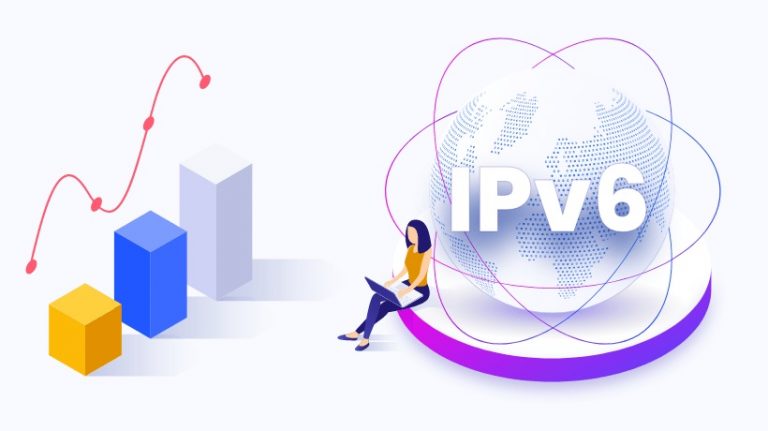
Nigeria is on the brink of a significant digital transformation as the Federal Government prepares to launch the latest version of Internet Protocol, known as IPv6. This move is set to redefine how internet users and their devices are identified, numbered, and tracked across the country, heralding a new era of enhanced cybersecurity and digital infrastructure.
This ambitious initiative was unveiled at the IPv6 Driven Digital Summit, an event that has brought together key stakeholders in Nigeria’s technology sector. The summit was organized by the National Information Technology Development Agency (NITDA) in partnership with global tech giant Huawei, the IPv6 Forum, and the IPv6 Council of Nigeria. The theme, “Bringing Net 5.5G Into Reality: Inspiring New Growth,” encapsulates the forward-looking vision of Nigeria’s digital future.
Dr. Bosun Tijani, Nigeria’s Minister of Communications, Innovation and Digital Economy, articulated the significance of this transition. He explained that the adoption of IPv6 is not just a technical upgrade but a strategic advancement that positions Nigeria among the leading African nations embracing cutting-edge digital protocols.
Register for Tekedia Mini-MBA edition 19 (Feb 9 – May 2, 2026): big discounts for early bird.
Tekedia AI in Business Masterclass opens registrations.
Join Tekedia Capital Syndicate and co-invest in great global startups.
Register for Tekedia AI Lab: From Technical Design to Deployment (next edition begins Jan 24 2026).
“With the adoption of IPv6, network providers in Nigeria can now offer more reliable services while enhancing the security of online transactions,” Dr. Tijani remarked
Strengthening Cybersecurity in a Digital Age
In a world where cyber threats are increasingly sophisticated, Nigeria’s shift to IPv6 is believed to be a timely intervention. The new protocol is designed to bring about a radical improvement in the management and security of internet traffic. For a country grappling with the challenges of cybercrime, IPv6 offers a much-needed tool to bolster national cybersecurity efforts.
Dr. Tijani highlighted the protocol’s ability to unmask cybercriminals, making it easier for authorities to track and monitor online activities.
“This is the standard used globally, but only a few countries like the U.S., France, Saudi Arabia, and United Arab Emirates are on IPv6; others are trying to catch up,” he noted.
With IPv6, Nigeria will be better equipped to create a safer digital environment, protecting both citizens and businesses from the growing threats of cyberattacks.
Unlocking Economic Potential
Beyond its security benefits, IPv6 is also a gateway to economic growth. Malam Kashifu Inuwa, Director-General of NITDA, shed light on the economic implications of this digital upgrade. He cited research from Roland Berger, a global consultancy firm, which suggests that the global market potential unlocked by IPv6 could reach an astounding $10 trillion.
The economic opportunities are vast, particularly as Nigeria continues to integrate with the global digital economy. Inuwa pointed out that most existing devices are already compatible with IPv6, which means that the migration process will be less about overhauling infrastructure and more about implementing strategic policies to ensure compliance.
“This migration to IPv6 is expected to open new economic opportunities and strengthen Nigeria’s cybersecurity posture,” Inuwa explained.
Building the Digital Backbone
As Nigeria embraces IPv6, the government is also making strides in ensuring that the country’s digital infrastructure is robust enough to support this new protocol. The Nigerian Communications Satellite (NigComSat) is at the forefront of these efforts, with plans to replace the aging NIGCOMSAT-1R satellite by 2026. This move is critical to maintaining uninterrupted internet coverage and supporting the growing demands of Nigeria’s digital ecosystem.
In a bid to bridge the digital divide, NigComSat has also partnered with Hotspot Network Limited to extend internet connectivity to rural communities. This collaboration is a key part of Nigeria’s broader strategy to ensure that all citizens, regardless of their location, have access to reliable and affordable internet services. By enhancing connectivity in underserved areas, the government is laying the groundwork for a more inclusive digital economy, where opportunities are accessible to all.
Many believe Nigeria’s transition to IPv6 marks the beginning of a new chapter in the country’s digital journey. It is a move that not only aligns Nigeria with global standards but also sets the stage for the nation to play a more prominent role in the global digital economy.
However, experts have advised the government to build the infrastructure needed to support this transition, so that the benefits of IPv6 will extend far beyond the tech sector, influencing everything from cybersecurity to economic growth.



